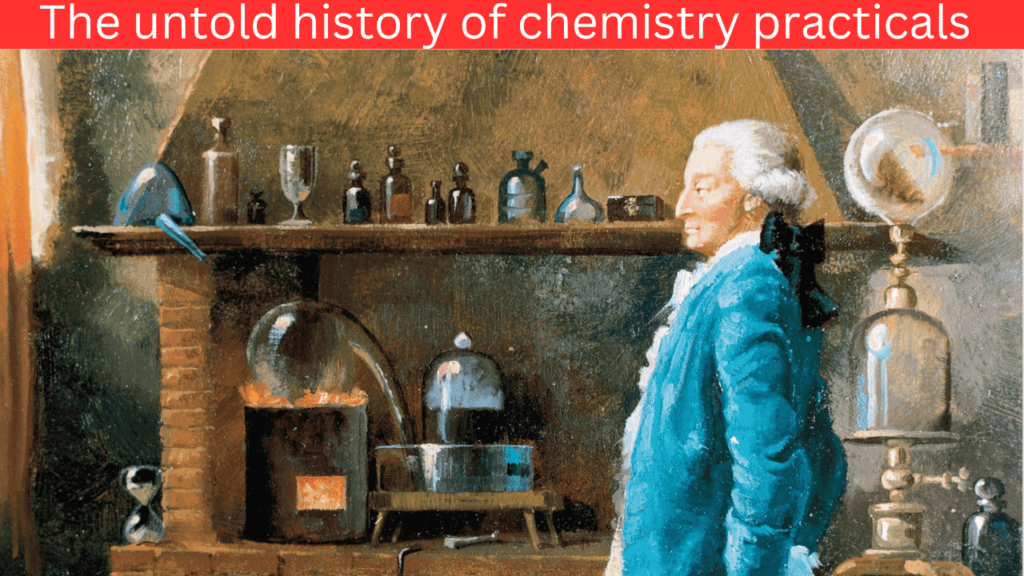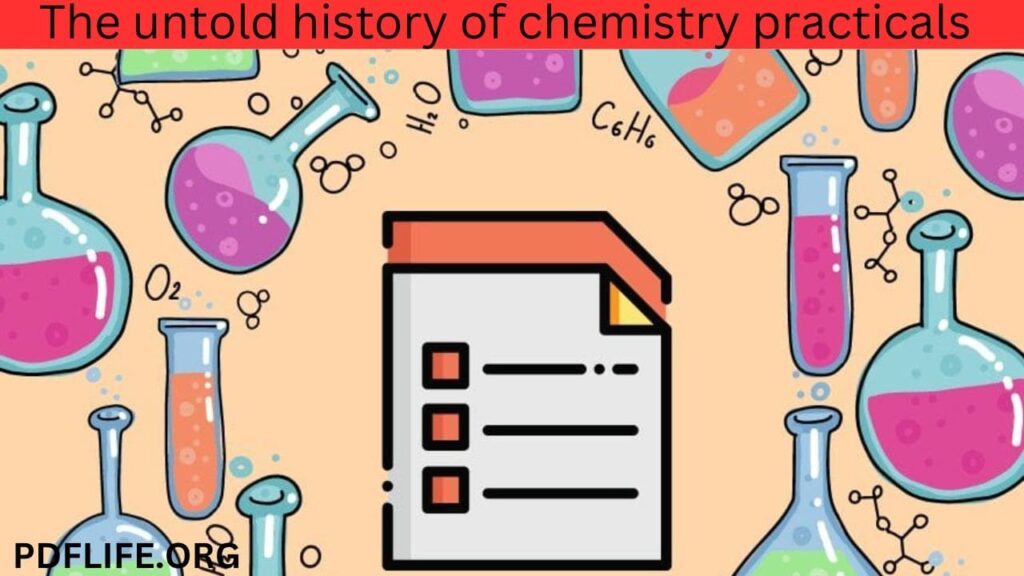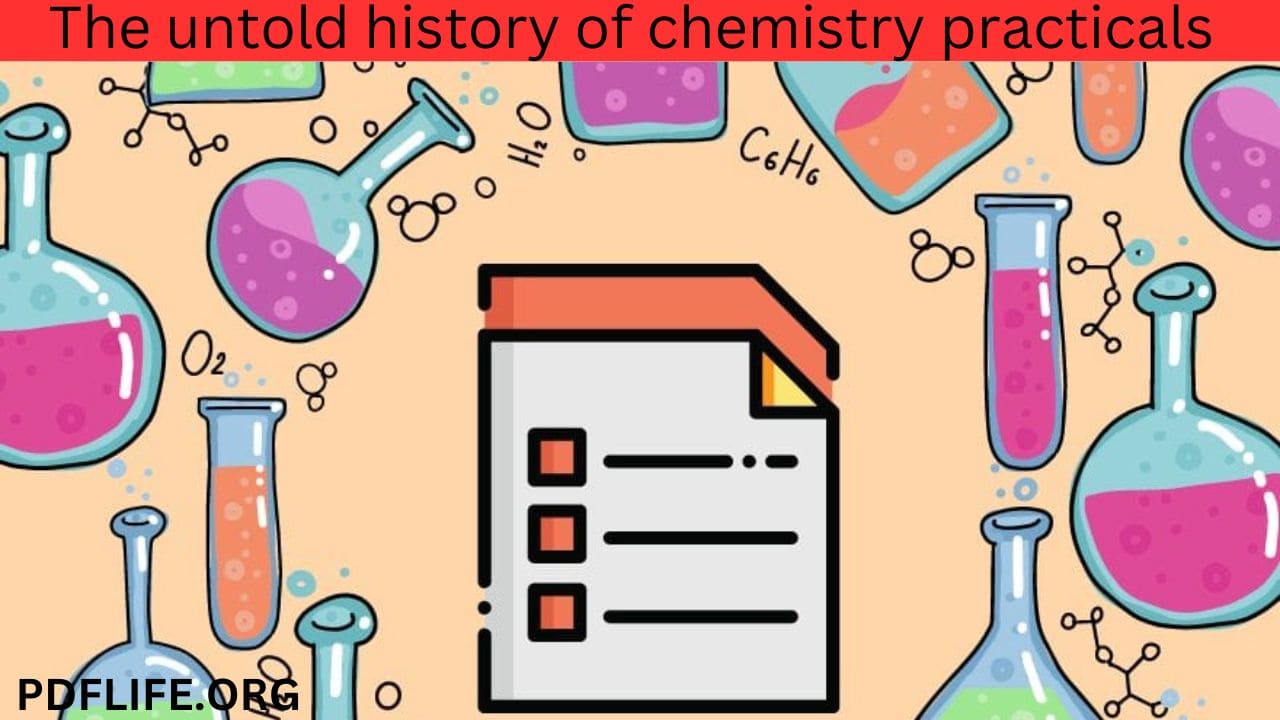
Chemistry practicals have a rich history that dates back to ancient times. As the discovery of natural resources like minerals and metals became more prominent, experimentation and the development of chemical processes followed suit.
This article’s brief history of chemistry focuses primarily on how ideas from the nineteenth century changed over time. A large number of these thoughts began right toward the start of the 100 years and arrived at a specific development by its end. In this way, an examination of the improvements over the time of only 100 years gives a nearly complete image of the course of the advancement of science.
In a few instances (the chemical bond, industrial applications, and catalysis), the fundamental ideas were not developed until the early 20th century. We must also step into the twentieth century in these instances to demonstrate the idea’s evolution.
The ancient Egyptians were known for their metallurgical, glassmaking, and embalming expertise and were among the earliest practitioners of chemical experimentation. The Greeks, particularly Democritus, contributed to the field of chemistry by postulating that all matter was made up of tiny, indivisible particles known as atoms.

The medieval period witnessed the use of chemistry practicals primarily for alchemical purposes, such as the search for the Philosopher’s Stone and the transmutation of metals. However, the scientific revolution during the 17th and 18th centuries introduced the concept of quantitative analysis and helped in the discovery and isolation of new elements, the development of chemical reactions, and the study of chemical properties.
Further advancements during the 19th and 20th centuries included the development of analytical techniques like spectroscopy and chromatography, which were used to develop industrial processes such as the Haber process for the production of ammonia and the Solvay process for the production of soda ash.
Today, chemistry practicals continue to play a critical role in teaching chemistry to students. They provide hands-on experience in the laboratory and help students develop problem-solving skills and critical thinking abilities. Chemistry practicals are used to teach various topics, including chemical reactions, stoichiometry, thermodynamics, kinetics, and analytical techniques.
Chemistry practicals have evolved over time to become an essential component of teaching and learning chemistry. These practicals are not only important in helping students to gain a deeper understanding of chemical concepts, but they also provide them with the opportunity to develop their laboratory skills and become familiar with laboratory equipment.
Chemistry practicals are an essential tool for scientific research and development. They are used to develop new chemical compounds and materials, test the safety of chemicals, and analyze environmental samples. Without practical work, many of the scientific discoveries and technological advancements that we take for granted today would not have been possible.
The benefits of chemistry practicals extend beyond the laboratory. They help to develop critical thinking and problem-solving skills, which are essential for success in a variety of careers. Chemists who are trained in practical work are in high demand across a range of industries, including pharmaceuticals, agriculture, and environmental science.
In recent years, there has been a renewed focus on the importance of practical work in chemistry education. Many countries are now implementing practical-based curricula to better prepare students for careers in chemistry and related fields. This renewed focus on practical work is a reflection of the critical role that it plays in the development of the next generation of chemists and scientists.
FAQ’s
Yes, you may be asked to write a procedure in a chemistry practical exam. Make sure it is clear, concise, and includes all necessary steps and safety precautions.
To write an observation in a chemistry practical, be detailed and accurate. Record all observations made during the experiment, including color changes, precipitation, gas formation, and any other changes in physical or chemical properties. Make sure to use specific terminology and units of measurement where applicable.
Conclusion
In conclusion, the history of chemistry practicals spans centuries, and they remain a crucial part of teaching and learning chemistry today. They are an essential tool for scientific research and development, and they help to develop critical thinking and problem-solving skills that are essential for success in a variety of careers. With the continued focus on practical work, the future of chemistry looks bright, and we can expect many exciting scientific discoveries and technological advancements in the years to come.
